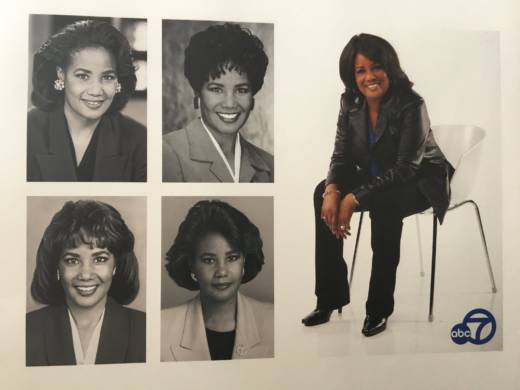“I don't want to say, 'I remember the good old days,' but I kind of do,” she said of the city, recalling the smaller-town feel it had when she first arrived, a time when rents and traffic congestion paled in comparison to today.
In particular, she laments the city's dwindling African-American population, which has decreased by more than half since she arrived. The change, largely brought on by the high cost of living, is particularly notable in once-robust black neighborhoods like the Fillmore and Western Addition.
“It's one thing I'm very sad about," Tyler said, noting a drop in diversity in the newsroom as well. "We just don’t have that many people here anymore," she said.
Throughout her career, Tyler has gravitated toward stories about social justice, including an Emmy-nominated series she produced that followed a group of Bay Area high school students on a road trip through the Deep South, visiting major landmarks and meeting key surviving leaders of the civil rights movement.
She also covered nearly every step in the long fight for marriage equality, from the moment in 2004 when San Francisco Mayor Gavin Newsom ordered the city clerk to issue same-sex marriage licenses to the jubilation in the streets in 2015 following the landmark Supreme Court decision establishing marriage equality nationwide.
“I followed that story just about every step of the way,” she said. "I believe it's just another part of the civil rights movement.”
In her final on-air appearance, Tyler was asked what about her career she's most thankful for.
“I think just the longevity itself," she replied. "Not many people get to have a career like I’ve had and to be at one station for as long as I’ve had. I hear from time to time, quite a bit of the time, people say: ‘I don’t care what room I am in the house, when I hear your voice on TV I know it’s you.' "

